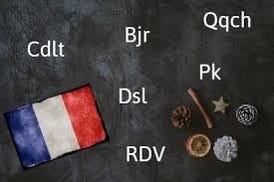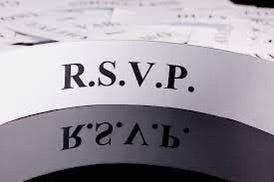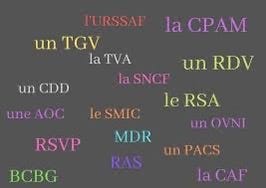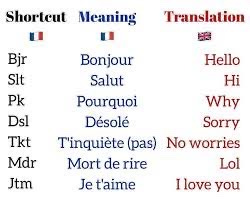QDN? The secret language of French acronyms
How the French make life even more confusing than the subjunctive verb tense

This is especially true in France, where acronyms are the fast talk of fast talkers. French speakers like to smash all their words together in an inextricable purée that leaves novice speakers bewildered and befuddled. The magic of sorting through a French conversation takes a discerning ear and a God-given ability to tolerate French arrogance and linguistic dissonance – or just the talent to act like you know what’s going on even when you’re more confused than a Trump supporter.
Throw in a few French acronyms and you have a non-native speaker on the ropes
Expats usually learn this semasiology not through study but via interaction with the bête noire of French life, the dreaded French bureaucracy, government agencies that control all Gallic life from birth and the stipend awarded to parents until death and the prohibitions about burial and the scattering of one’s ashes, possessions and the inability to disinherit one’s children no matter how drug-addicted, oft-married and possessed of illegitimate offspring they might be.

Learning to translate, MDR, RDV, EDF, CDS, DELF & PUMA is the stuff of daily French life

Of course, all English speakers know that RSVP means réponde s’il vous plaît, or please respond, but do they know that STP isn’t an oil additive but a familiar way of saying “please” (s’il te plaît) or alternatively, bonsoir (good evening)?

Living in France must know acronyms
Acronyms you quickly learn in France are TVA (taxe sur la valeur ajoutée/value added tax) and VO (en version original/the language is the original, usually in a movie listing). It’s also vital to know the difference between the RER (regional transport system), the TGV (três grande vitesse/high-speed trains), and TER (another regional train system that defies explanation.)
Acronyms: Working in France must-knows
Only folks allowed to work in France need to know the difference between a CDD and a CDI (limited-term job contract or long-term work agreement.) Anyone from America or English-speaking cultures knows what a CV is, but how about an ME (someone self-employed, aka a micro-entrepreneur)? But you can’t become a PDG (the equivalent of a CEO, “président director général”) unless you know what it is. Still, everyone needs to know the SMIC (salaire minimum de croissance or to us Americans, the minimum wage.) That’s because to get a CDS (carte de séjour or residence permit) you have to prove to the French government that you have that much income per month without working and won’t be a deadbeat in France.

Above all, an expat needs to know the difference between OFII (French Office of Immigration and Integration), a VLS and a VLS-TS (just don’t ask), PUMA (the right to universal medical coverage) and CPAM (the local office of Assurance Maladie or Medical Insurance). You need to know when to get an AR (accuséde réception (certified mail receipt) and the brass ring of expat life, the CDS, the key to unlocking your beautiful French life.
 Getting to stay in France and not be illegal is a maze of acronyms that expats navigate with fear and loathing. When all else fails, there’s always the safety valve of the MDR (mort de rire or dying of laughter) or plotting an escape from next year’s JO (jeux olympiques/Olympic Games) and buying oneself a BD (bande desinée/comic book).
Getting to stay in France and not be illegal is a maze of acronyms that expats navigate with fear and loathing. When all else fails, there’s always the safety valve of the MDR (mort de rire or dying of laughter) or plotting an escape from next year’s JO (jeux olympiques/Olympic Games) and buying oneself a BD (bande desinée/comic book).
Or a stranger in this strange land can plunge back into the ANEF (administration numérique pour les étrangers en France/online administrative tasks access for foreigners in France). You can always hire a native French speaker and pay them with a CB (carte bancaire/credit card) or using their RIB (relevé d’identité bancaire (bank account number). Don’t be NRV (énervé/nervous), CAD (c’est a dire/in other words) QDN (quoi de neuf/what’s new). BCP (beaucoup/a lot. SLT (salut).
Ok, so now you are in the Know too. Do you have any other acronyms to add to this discussion? Please share in the comments
Images credits:
All images public domain via Runaway Wife






